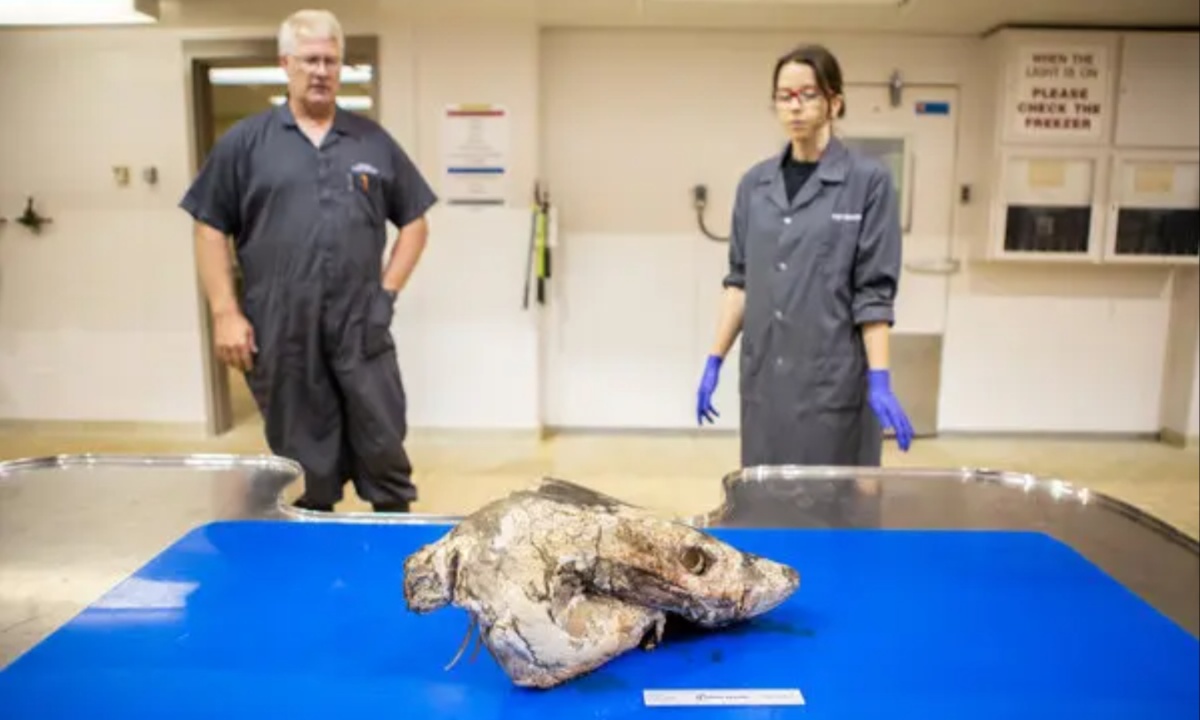For over 30 years, Canadian wildlife agencies have not reported any dead great white sharks. However, in a single year, five of these sharks washed up along the Canadian coast, leaving scientists perplexed. The mystery deepened when similar cases were reported in the United States. These sharks showed no obvious signs of starvation or injury, yet microscopic testing revealed the cause of death to be meningoencephalitis, an inflammation of the brain and surrounding tissues. This condition may impair a shark’s ability to swim or hunt, leading to beaching.
The Unidentified Cause of Meningoencephalitis
Meningoencephalitis is a symptom of an underlying issue, not a disease by itself. Despite its discovery in sharks from locations like Prince Edward Island, Canada, and South Carolina, USA, the cause of this inflammation remains unknown. While the disease’s presence in multiple sharks is concerning, there is little understanding of what triggers it. Harley Newton, Chief Scientist at OCEARCH, emphasized the lack of knowledge about natural diseases affecting wild sharks, making it difficult to assess the impact of this condition on shark populations.

This mystery comes at a troubling time for great white sharks, whose populations are already vulnerable. These sharks in the North Atlantic have only recently started to recover from decades of overfishing and hunting. David Shiffman, a shark conservation scientist, highlighted that a third of all known shark species are threatened with extinction. While shark conservation efforts in the United States have shown some positive results, the North Atlantic population remains under-researched, with few studies conducted on their health and behavior.
Potential Risks to the Shark Population
Although the disease has affected only a small number of sharks so far, experts worry about the possibility of it spreading to the broader population. Shiffman noted that while the disease is not yet a population-level threat, its potential to spread could have serious consequences. The disease, if left unchecked, could impact the recovery of this already endangered species. Continued monitoring and research are needed to understand the full extent of the issue and prevent it from becoming a larger problem.
Great white sharks play a vital role in maintaining the balance of marine ecosystems by controlling the populations of other species. As apex predators, their health is crucial for the overall stability of the food chain. If the mysterious disease spreads further, it could disrupt the ecosystem, causing imbalances that affect numerous species. Researchers like Newton are working to gather more information, including brain tissue samples for genetic analysis, in hopes of identifying the cause of meningoencephalitis. Until then, the focus remains on better understanding natural diseases in sharks and their potential impact on both shark populations and marine ecosystems.
